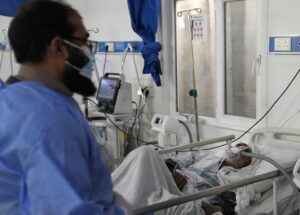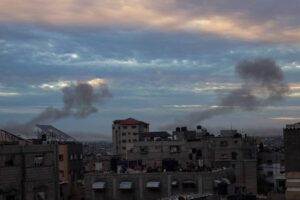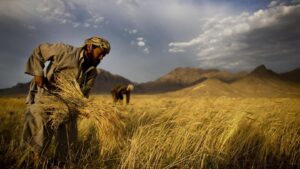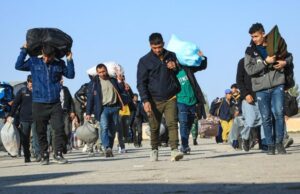KABUL (SW) – Media houses and journalists across Afghanistan continue to face challenges nearly seven months on since the establishment of the Islamic Emirate in Afghanistan.
A number of media outlets have stopped operating due to lack of resources and economic problems, and many journalists have lost their jobs.
However, the lack of cooperation and coordination between the Islamic Emirate and journalists to access information is another obstacle and challenge beyond causing problems.
A number of reporters told Salam Watandar that with the advent of the Islamic Emirate in Afghanistan, the right of access to information has been severely restricted and that the authorities are not cooperating with them.
Dawood Shah Mel, a senior Salam Watandar reporter, says that he often contacts the officials of the Islamic Emirate to prepare his reports, and many times his calls are either not answered or replied only briefly and late.
Criticizing the lack of cooperation from the Islamic Emirate to access information, he added that the official spokespersons are not willing to have a direct conversation and often demand to receive the questions via WhatsApp.
The veteran journalists said only one or two questions could be sent via WhatsApp, but the officials do not bother themselves to respond to counter-questions about their replies that makes preparing reports difficult.
Meanwhile, Hameeda Madadi, a female journalist, says it is very difficult to get the views of Islamic Emirate officials for her reports. She added that the lack of accountability of the Emirate’s spokespersons has caused a number of her reports to be dropped from the broadcast.
“In several important reports that I wanted to get the views of the officials of the Islamic Emirate, the spokespersons of a many ministries refused to respond,” she said. “Them not answering my calls has prevented our reports from being published.”
It is not one media house in the country that is facing the challenge of not having access to information, journalists from all media houses are facing this challenge.
According to them, they often contact the officials of the Islamic Emirate, but officials are reluctant to provide information. Reporters say that the situation of journalists in the country is very worrying and the field of activity of journalists in Afghanistan is getting narrower every day.
“When we want to get information from a government agency, we have to call many times, and sometimes our calls are rejected, sometimes they say they will come back with replies in half an hour,” said Merajuddin Mujrei, a journalist. “But they (officials) are not ready to provide information.”
Habibaullah Zafari, a reporter for Rah-e Farda TV, said: “After the establishment of the Islamic Emirate, access to information has become very limited, and the field of media work has become very narrow. Unfortunately, we are witnessing a deteriorating state of media in Afghanistan every day.”
These reporters call on the authorities of the Islamic Emirate to cooperate with journalists to access the information. According to them, if this trend continues, media reports will not be balanced.
“We want serious attention to be paid to this issue,” Mansour Yousufozi, a correspondent for Radio Kilid, told Salam Wtandar. “The Islamic Emirate must cooperate with journalists and media houses, and if it does not cooperate with the media and journalists, all media reports will be broadcast unilaterally without their views.”
On the other hand, Mohammad Zarif Karimi, a member of NAI – Supporting Independent Media, says that the Islamic Emirate has not fulfilled its promises to the media organization. He added that the Islamic Emirate could enforce the right-of-access mechanisms in Afghanistan under the previous constitution and the Access to Information Act.
Bilal Karimi, one of the deputy spokespersons of the Islamic Emirate, refused to respond to our repeated calls during the preparation of this report.
Earlier, journalists’ support bodies, including the Reporters Without Borders (RSF) and the Committee to Protect Journalists, also expressed concern about the situation of journalists in Afghanistan.
ENDS






